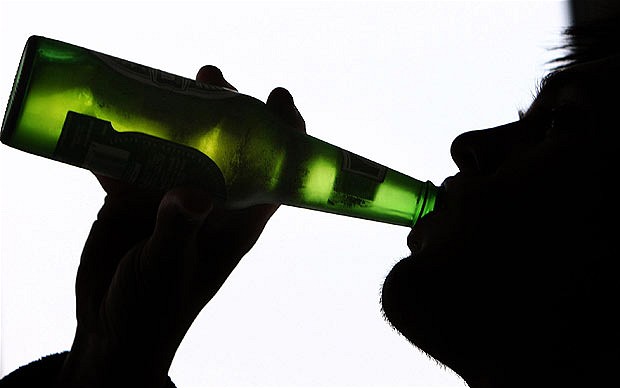Health News – A stunning one in 10 deaths in working-age adults may be due to excessive alcohol consumption, a new government study shows.
 That adds up to 88,000 deaths per year from 2006 to 2010, according to the report released Tuesday by the Centers for Disease Control and Prevention. Put another way, that means that binge drinking and heavy regular drinking cut 30 years off the lives of those who died.
That adds up to 88,000 deaths per year from 2006 to 2010, according to the report released Tuesday by the Centers for Disease Control and Prevention. Put another way, that means that binge drinking and heavy regular drinking cut 30 years off the lives of those who died.
Some of those deaths were due to the long-range effects of chronic alcohol consumption at a rate of 15 or more drinks a week for men and 8 or more drinks a week for women. Those included mortality from breast cancer, liver disease and heart disease, CDC researchers reported.
Other deaths were associated with binge drinking—five or more drinks in a single bout for men and 4 or more for women. The top three causes of death included motor vehicle crashes (25 percent), homicides (16 percent) and falls (15 percent).
That adds up to 2.5 million years of potential life lost, according to the researchers’ calculations.
The new data are very concerning, said the report’s lead author, Mandy Stahre, who was a CDC researcher when the study was being conducted and is now an epidemiologist with the state of Washington.
“We looked at deaths from 2001 to 2005 and those numbers were high also,” Stahre said. “So it’s been going on for at least the past 10 years. It’s the third leading cause of preventable death. I don’t think it gets a much attention as tobacco which is the leading cause.”
David Jernigan suspects that the new numbers will be a surprise to most Americans.
“When people think about alcohol problems, they think about addiction and motor vehicle crashes, but this shows that there are many ways to die from alcohol,” said Jernigan, an associate professor at the Johns Hopkins Bloomberg School of Public Health.
“The big problem isn’t the addicts, but the binge drinkers who so far outnumber those who are addicted.  Anybody can have a problem if they drink to excess on a single occasion. You don’t have to be addicted to crash your car into a tree or fall into a pool or off a hotel balcony.”
Anybody can have a problem if they drink to excess on a single occasion. You don’t have to be addicted to crash your car into a tree or fall into a pool or off a hotel balcony.”
For those who are addicted, there are new strategies to beat alcoholism, said Dr. Charles O’Brien, a professor of psychiatry at the University of Pennsylvania and director of the Center for Studies in Addiction.
Along with counseling, patients can try a monthly shot containing a drug called naltrexone, which blunts the alcohol high by blocking the opioid receptors in the brain, O’Brien said.
Another big change in the way specialists are treating some heavy drinkers: They may focus on reducing drinking, rather than going cold turkey. “If you reduce your drinking from heavy to moderate, you can greatly improve your health,” O’Brien said.
Specialists hope that the new report will resonate with Americans.
“This report from the CDC is a good wake up call for adults,” Jernigan said. “It’s a serious drug that causes serious harm.”
And with the July 4th weekend coming up, Stahre hopes Americans will keep these numbers in mind and drink in moderation. At the very least, she said, people should recognize that it’s not enough to avoid driving after drinking.
“Alcohol leads to a broad range of causes of death, including drowning, boating crashes and falls,” she added.
BY LINDA CARROLL,nbcnews.com

